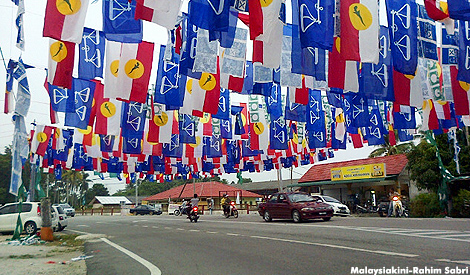By Bridget Welsh
13 May 2016, 11:25 am
Malaysia Kini
With the ‘landslide’ results of the Sarawak election last week, it would appear on the surface that Malaysia’s Prime Minister Najib Abdul Razak has been given a political reprieve. His close ally Sarawak’s Chief Minister Adenan Satem secured an overwhelming majority of 72 out of 82 seats, or 87 percent of the seats.
The Barisan Nasional (BN) coalition gained 8.3 percent of the popular vote, to a total of 63.7 percent compared to the 55.4 percent it won in 2011.
It would seem that the message sent across the world was that Sarawakians support the BN. They appear to care little for corruption, abuse of power, an electoral system that relies on massive vote buying, gross distortions of electoral constituencies and abuse of political position against opposition alternatives.
They were not moved by one of the most serious global money-laundering scandals. In fact, while this may be true for some of the electorate, this reading of the election is not complete.
Continue reading “Victory and insecurity – Sarawak results and trajectories”

